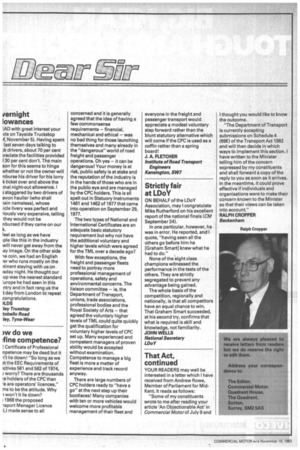)1A1 do we fine competence?
Page 22

If you've noticed an error in this article please click here to report it so we can fix it.
E Certificate of Professional npetence may be dead but it
lie down! "So long as we at the EEC Requirements of :dives 561 and 562 of 1974, worry? There are thousands re holders of the CPC than -e are operators' licences," ms to be the attitude. Why won't it lie down?
1968 the proposed isport Manager Licence L) made sense to all concerned and it is generally agreed that the idea of having a few commonsense requirements — financial, mechanical and ethical — was no bad thing for those launching themselves and many already in the "dangerous" world of road freight and passenger operations. Oh yes — it can be dangerous! Your money is at risk, public safety is at stake and the reputation of the industry is in the hands of those who are in the public eye and are managed by the CPC holders. This is all spelt out in Statuory Instruments 1461 and 1462 of 1977 that came into operation on September 29, 1977.
The two types of National and International Certificates are an adequate basic statutory requirement but why not have the additional voluntary and higher levels which were agreed for the TML over a decade ago?
With few exceptions, the freight and passenger fleets need to portray more professional management of operations, safety and environmental concerns. The liaison committee — ie, the Department of Transport, unions, trade associations, professional bodies and the Royal Society of Arts — that agreed the voluntary higher levels of TML could quite quickly get the qualification for voluntary higher levels of CPC set up. Many experienced and competent managers of proven ability would be accepted without examination. Competence to manage a big fleet is more a matter of experience and track record anyway.
There are large numbers of CPC holders ready to "have a go" at the next step up their bootlaces! Many companies with ten or more vehicles would welcome more profitable management of their fleet and everyone in the freight and passenger transport would appreciate a modest voluntary step forward rather than the blunt statutory alternative which will come if the CPC is used as a coffin rather than a spring board!
J. A. FLETCHER Institute of Road Transport Engineers Kensington, SW7




























































































